Edris Hassannataj
FCM-DNN: diagnosing coronary artery disease by deep accuracy Fuzzy C-Means clustering model
Feb 28, 2022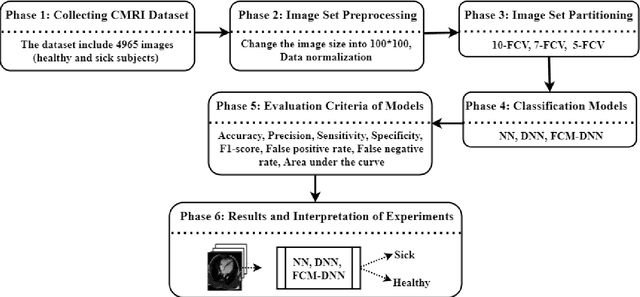

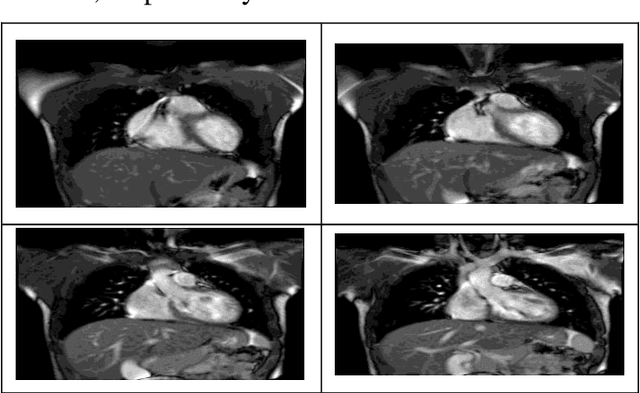

Abstract:Cardiovascular disease is one of the most challenging diseases in middle-aged and older people, which causes high mortality. Coronary artery disease (CAD) is known as a common cardiovascular disease. A standard clinical tool for diagnosing CAD is angiography. The main challenges are dangerous side effects and high angiography costs. Today, the development of artificial intelligence-based methods is a valuable achievement for diagnosing disease. Hence, in this paper, artificial intelligence methods such as neural network (NN), deep neural network (DNN), and Fuzzy C-Means clustering combined with deep neural network (FCM-DNN) are developed for diagnosing CAD on a cardiac magnetic resonance imaging (CMRI) dataset. The original dataset is used in two different approaches. First, the labeled dataset is applied to the NN and DNN to create the NN and DNN models. Second, the labels are removed, and the unlabeled dataset is clustered via the FCM method, and then, the clustered dataset is fed to the DNN to create the FCM-DNN model. By utilizing the second clustering and modeling, the training process is improved, and consequently, the accuracy is increased. As a result, the proposed FCM-DNN model achieves the best performance with a 99.91% accuracy specifying 10 clusters, i.e., 5 clusters for healthy subjects and 5 clusters for sick subjects, through the 10-fold cross-validation technique compared to the NN and DNN models reaching the accuracies of 92.18% and 99.63%, respectively. To the best of our knowledge, no study has been conducted for CAD diagnosis on the CMRI dataset using artificial intelligence methods. The results confirm that the proposed FCM-DNN model can be helpful for scientific and research centers.
GSVMA: A Genetic-Support Vector Machine-Anova method for CAD diagnosis based on Z-Alizadeh Sani dataset
Jul 23, 2021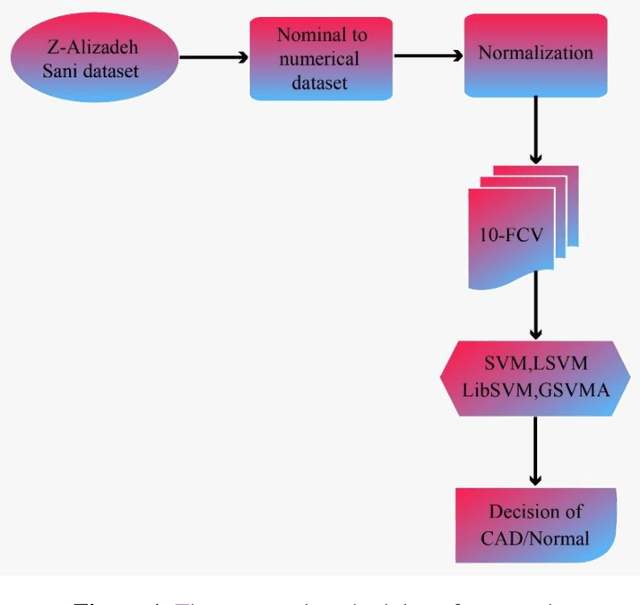
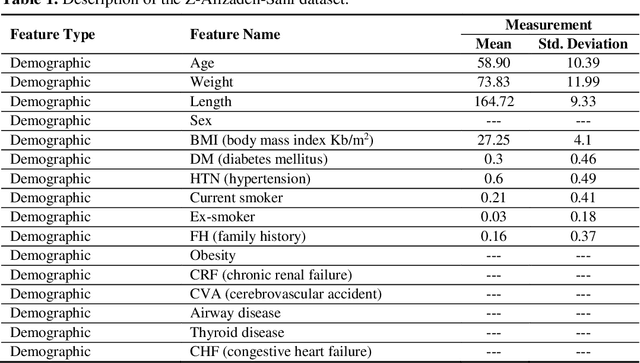
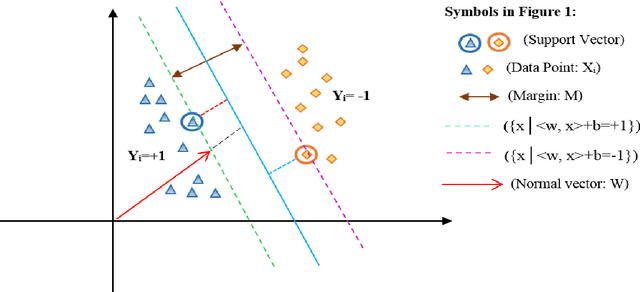
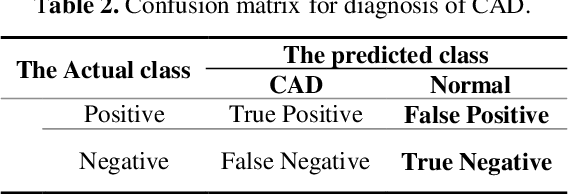
Abstract:Coronary heart disease (CAD) is one of the crucial reasons for cardiovascular mortality in middle-aged people worldwide. The most typical tool is angiography for diagnosing CAD. The challenges of CAD diagnosis using angiography are costly and have side effects. One of the alternative solutions is the use of machine learning-based patterns for CAD diagnosis. Hence, this paper provides a new hybrid machine learning model called Genetic Support Vector Machine and Analysis of Variance (GSVMA). The ANOVA is known as the kernel function for SVM. The proposed model is performed based on the Z-Alizadeh Sani dataset. A genetic optimization algorithm is used to select crucial features. In addition, SVM with Anova, Linear SVM, and LibSVM with radial basis function methods were applied to classify the dataset. As a result, the GSVMA hybrid method performs better than other methods. This proposed method has the highest accuracy of 89.45% through a 10-fold cross-validation technique with 35 selected features on the Z-Alizadeh Sani dataset. Therefore, the genetic optimization algorithm is very effective for improving accuracy. The computer-aided GSVMA method can be helped clinicians with CAD diagnosis.
A Survey of Applications of Artificial Intelligence for Myocardial Infarction Disease Diagnosis
Jul 05, 2021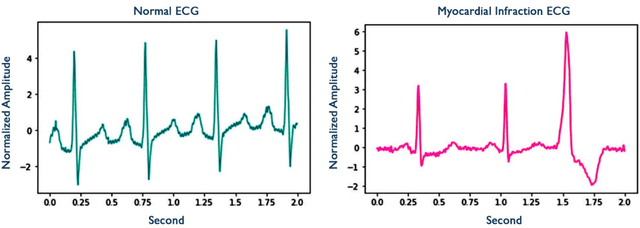


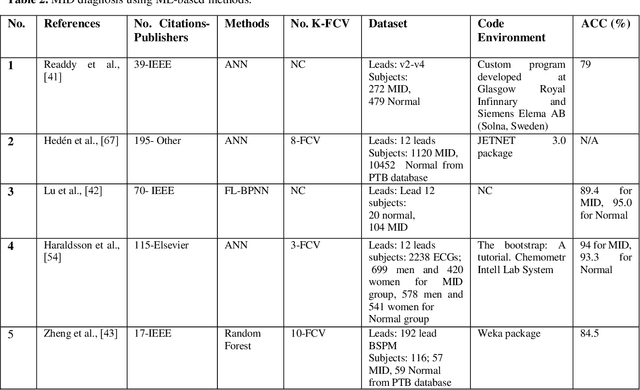
Abstract:Myocardial infarction disease (MID) is caused to the rapid progress of undiagnosed coronary artery disease (CAD) that indicates the injury of a heart cell by decreasing the blood flow to the cardiac muscles. MID is the leading cause of death in middle-aged and elderly subjects all over the world. In general, raw Electrocardiogram (ECG) signals are tested for MID identification by clinicians that is exhausting, time-consuming, and expensive. Artificial intelligence-based methods are proposed to handle the problems to diagnose MID on the ECG signals automatically. Hence, in this survey paper, artificial intelligence-based methods, including machine learning and deep learning, are review for MID diagnosis on the ECG signals. Using the methods demonstrate that the feature extraction and selection of ECG signals required to be handcrafted in the ML methods. In contrast, these tasks are explored automatically in the DL methods. Based on our best knowledge, Deep Convolutional Neural Network (DCNN) methods are highly required methods developed for the early diagnosis of MID on the ECG signals. Most researchers have tended to use DCNN methods, and no studies have surveyed using artificial intelligence methods for MID diagnosis on the ECG signals.
 Add to Chrome
Add to Chrome Add to Firefox
Add to Firefox Add to Edge
Add to Edge